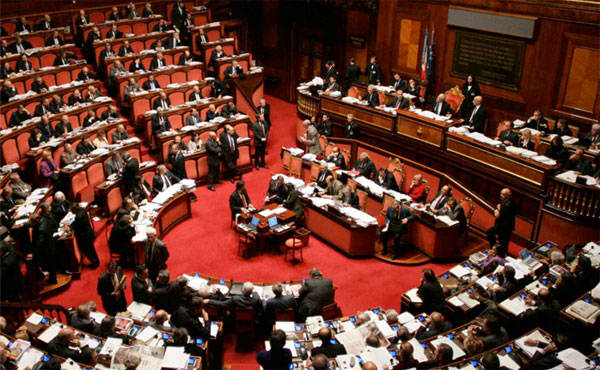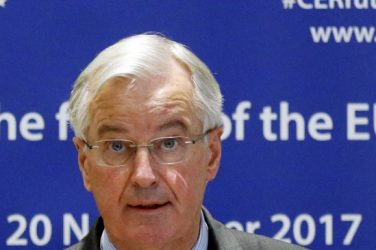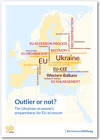A successful politician needs at least two things. One is “o’erarching ambition”, to use Shakespeare’s wonderful phrase. The other is the ability to see unfolding scenarios, and position herself to take advantage of the scenario, indeed to help choreograph it. In a country, Italy, where everyone seems to pride themselves on being “furbo”, it thus comes as a major surprise that, over at least the past 18 months, several events have occurred which political commentators and practicing politicians alike variously claim to be “inexplicable”, “totally unexpected”, “without reason”, and sundry similar phrases. Unless these people are trying to fool everyone (rather like the finance houses in London when they claimed not to have factored in the possibility of a winning Brexit vote in the 2016 referendum), they are surely putting their own credentials in jeopardy.
So let’s look a bit more carefully at what has been, and is, really going on. While the remarks that follow obviously lay this writer open to the charge of benefitting from hindsight, the argument outlined here is that a little bit of analysis would have sufficed to understand better the likely trajectories of Italian politics. Or, in Kahnemann’s apt terminology, a dose of thinking slow would have corrected the waywardness risk stemming from thinking fast. Frenetic knee jerk reactions are not to be recommended on dance floors, soccer fields, or in most political environments.
A glance at Italian political history over the past three decades throws up several highly visible features. In no special order, these are as follows.
First, tangentopoli revealed that many things were profoundly rotten in the body politic. Scandals of such proportions were more or less bound to generate new political formations, of which Forza Italia became the most prominent. These formations, to be successful, naturally sought identification with people and groups that could be presented (honestly or not) as being relatively distant from the existing political formations.
Second, the Partito Democratico (PD) was an outgrowth of the many different currents swirling in the “leftist” stream. Since Berlinguer’s style of Eurocommunism in the 1970s, the more strident versions of a leftist position had been toned down. The fall of the Berlin wall, in addition to the marked shift of Mitterand’s France, enjoined Italians to become more centrist. But in terms of the actual composition of the PD, there remained, and exist till this day, significant differences in how different people interpreted the party’s aims.
Third, the looming dangers of public debt drove successive PD governments to engage in a privatization policy which, like so many in various European countries, was not well handled. Moreover, outright sales were not the only route chosen for divestment. Sub-contracting (via public procurement procedures) of provision of products and services was actively pursued. There too the mirage that this would necessarily save public money led to a number of costly mistakes. Italy continues to struggle with the debt, and with how public procurement should best be done. The production in 2016 of a new Code for Public Procurement has been overshadowed by the ongoing controversies following the Morandi disaster of August 2018, and the recognition that public procurement is a perfect place for corruption.
Fourth, by the start of this decade the Euro crisis, complicated in Italy by the long term burden of a public debt acquired much earlier, led to the forcible removal of the Italian Prime Minister. This action, in which the German government was seen as a major player, provided fertile territory for the “victimization” litany chanted so often during the past 18 months. It also brought into relief a divide between those who saw the EU arrangements as favorable for Italy, and those who did not. The significance of this divide was dramatically highlighted in a statement made a couple of days ago by the new Italian finance minister when he said “mai piu una guerra contra Europa”.
Fifth, there have been constant efforts, stemming from several sources, to change the structure of political institutions and their operation. Berlusconi wanted a Presidential system – that remains the aim of his political offspring, Matteo Renzi. The latter attempted in December 2016 to obtain, via referendum, a mandate for constitutional change, but was unsuccessful. Ongoing debates about a proportional voting system, and an appreciable reduction in the numbers of senators and deputies, continue to figure in political programs.
Sixth, the entry into parliament of the M5S sought to give substance to the idea that ethics should be a major element in politics. Post tangentopoli cleaning had never been thoroughly done. M5S tried to stake out a territory that was neither right nor left, a sort of ethical pragmatism. The relative success of the group in the 2018 parliamentary elections meant that it became, as the largest single party in the lower house, a real candidate for a governmental coalition.
Seventh, the PD in 2018 was not ready to immolate itself on the bonfire of being a junior partner in an M5S government. True to the universal behavior of allegedly leftist groups, PD would not allow itself to be destroyed – that task must, as a doctrinal matter, be carried out by the PD itself (as Renzi is now doing).
Eighth, short of new elections, there was thus in the spring of 2018, no viable alternative to the Gialloblu coalition.
This is the backdrop to subsequent events. The mise en oeuvre of the program (contract) agreed by La Lega and M5S was then dominated by the presence and forcefulness of Matteo Salvini. For reasons best known to itself, though those reasons probably include the character of Luigi di Maio and the void left by Grillo, the M5S took very much a background role in the actual operation of government. Salvini set the agenda, and above all the tone for how it was carried out.
The policy against illegal Immigration, shamefully endorsed by M5S through the two Sicurezza decrees, became a platform for both a “sovereignist” stance and attacks against the EU (in this Salvini was echoing Farage, although the latter had no grounds for his actions while Salvini did have some). The battles over the government budget were of course the second area where the EU could be lambasted. Once again Salvini did have some grounds for the “victimization” claim. The last thing needed to feed the flames of this particular bonfire was to hear the hapless Frenchman, Pierre Moscovici, lecturing Italy about financial probity. This was the same Moscovici who had been nominated as EU Commissioner by Francois Hollande. And the French President was quoted in the famous 2016 book “Un President ne devrait pas dire ca” as saying that France could continue to run deficits and break the budgetary rules because, while Germany might call the financial shots, France was always the political master. M5S again went along in the wake of the Salvini bulldozer, with Luigi Di Maio feebly repeating the desire for the “reddita della cittadinanza”. Salvini pushed his objective of more regional autonomy (something that would favor his heartland of the north, where La Lega Nord had of course grown, likewise in conjunction with the tangentopoli scandals). Finally, and especially in the course of this year, Salvini argued for the rapid award of public tenders so that infrastructure investments could take place (“Sblocca Cantiere”).
In the period following the formation of the gialloblu coalition, it was widely reported that Renzi was building a network of civic action groups, financed from a variety of sources, that could be called upon to support him in actions that he might decide to take. Anyone who had watched him over the years knew at least two things. One was that his ambition was limitless, and that he regarded himself as nothing less than a leader – he would never play a subsidiary role to anyone. The other was that he had never been on that wing of the PD which was more inclined to take “leftist” actions. An excellent public demonstration of where his sympathies lay occurred in early 2015, when the newly elected Greek Prime Minister, Alexis Sipras, visited Rome to seek Renzi’s help in countering the immense pressure from Brussels – all he received was an Italian silk tie. Renzi had repeatedly shown his center-right tendencies. As long as the PD could serve as a vehicle for that approach, he could stick with it. But 2016 had demonstrated to him that the PD was no longer a suitable device. Hence a new one would have to be created.
The European elections of May this year confirmed the exceptional weakness of the PD. At the same time, they underlined the strong dissatisfaction of the electorate with the behavior of M5S during its year in government. In electoral terms the clear victor was La Lega. The issue facing Salvini was how he would use the powerful position he was now in. In the few weeks after the elections, he concentrated on the immigration question and ramped up the rhetoric. But meanwhile, the EU had to decide on the future composition of the incoming Commission. After the Council of Ministers had hijacked the Spitzenkandidat system, whereby the Parliament would have made the nomination for the new President of the Commission, the next key step was whether the Parliament would approve the Council choice of Ursula von der Leyen. Since that process required a favorable majority vote in the Parliament, she had to talk to the parties represented. It appears that La Lega had decided that, despite its misgivings about the German candidate, it was ready to vote for her (she was after all linked with the European Peoples Party, which had still not ejected Fidesz, run by Salvini’s apparent friend, Orban). The day before the confirmation vote, scheduled for 12 July, Von der Leyen indicated that she could do without the votes of what she denounced as a populist party (La Lega). So when the vote took place, La Lega abstained (a sensible choice, given the circumstances). The small groups of M5S deputies, however, voted in her favor – and it turned out that those votes were enough to give her a very narrow victory.
It seems that this circumstance, along with other matters such as the Russiagate scandal, may have encouraged Salvini to go for broke. He would declare a lack of confidence in the Premiership of Conte, and pull out of the government coalition. In Salvini’s view, Conte would just roll over. In his eyes this would force President Matarella to call new elections. These would give Salvini himself overall power. The intoxications of power, like most intoxications, rarely improve reasoning and judgment. While Di Maio may have been supine, Conte had learned things during the period of government. He had appeared in promising photoshoots with Frau Von der Leyen; he had navigated many turbulent foreign waters while Salvini was occupied at home; and he had even managed to maintain decent relations with President Trump. Most of all, he saw a chance to keep doing a job which he was liking. So he refused to go. Given that President Matarella had to deal in the first instance with Conte, the latter had an inside track (albeit narrow and tricky).
Put yourself in the place of Renzi looking at these unfolding events. You have always had a clear-cut goal – to be in power yourself and stay there. The PD, which you have for years belonged to, but not had much confidence in, is electorally down and out. But Conte’s stance has given you an opportunity to push the PD, where your influence remains massive, into making a deal with M5S to form a new government. That way, your main political rival, the person whose ambition rivals your own, can be blocked. Given that your ambivalent stance towards the PD has long been known, that a potential ex PD centrist rival, Calenda, has pulled out and formed his own group, Siamo Europei, and that your old friends in Forza Italia have announced (through the statement last week by Mara Carfagna) that they will now follow what they describe as a liberal line, you can safely pull out and set up your own group (with the insipid name of “Italia Viva”, though inclusion of Italia in the title was probably shrewd in today’s atmosphere). As long as you simultaneously announce that you will not (at least in the very near future) pull the plug on the new coalition, you can propel yourself back onto center stage – which you consider to be the only place suitable for you.
Any decision involves some risks, and chance is always a fickle neighbor. But from the viewpoint of Florence, this is a pretty decent bet. It fits well the strategy you have been working on, and gives you enough flexibility to cope with what Shakespeare called “the slings and arrows of outrageous fortune” (who currently seems to be on your side). If people are generally surprised, then even better – for that demonstrates that they may not fully have understood what you are up to.
I have therefore argued that Kahnemann’s thinking slow mode can be a great help in seeking to grasp the countless curves in the Italian road. But it would be remiss of me to stop there. I must state where I think things may be going.
Let’s start with what we know must happen as of October, namely a series of important regional elections in Italy. Umbria is the place receiving the most attention. La Lega and Fratelli d’Italia are clearly competing on the same side of the fence, with their declared enemies being the new government. M5S and the rump of the PD are seeking to make some arrangement that will allow them to present a more or less common front. Italia Viva is obviously up against a severe time shortage in presenting candidates, and it is true that the current acting regional governor is PD. The region has been PD for a long time, but the previous governor is under serious accusations of corruption.
Even so, Italia Viva has no need to attempt a significant campaign, and in fact could well gain by keeping a low profile. It can safely keep an observer position and see how the results turn out. In any case, the label of a new party can help in trying to distance Renzi and the 40 or so Senators and Deputies who, thus far, have announced their affiliation with Italia Viva from the corruption of the PD. For the moment, the new group will present a low profile. The demonstrations planned, by La Lega and Fratelli d’Italia, for the third week of October will also help Italia Viva gain a better grasp of how things may be developing.
Meanwhile, in Brussels there will be the hearings and vote regarding Van der Leyen’s proposed Commission. Just prior to that, on 28 September, national elections in Austria may clarify the position there. In Spain in October the Supreme Court will give its verdict on the trial of the 12 Catalans accused of sedition, while a little later, in early November, there will be yet another General Election. These events, along with perhaps some decisions concerning Brexit, and perhaps finally the formation of a government in Belgium following the elections of last May, should mean that within the next couple of months, the situation in the EU is a little clearer.
The capacity and robustness of the Giallorosso government to take decisions on key matters in Italy, along with whatever directions the new Commission may take, will severely test its credentials. It is by no means evident that it will receive much help from Brussels, where quick actions are not normally taken and the presumed goodwill may not produce much that is tangible. Internally, dissatisfaction and frustration could rapidly ratchet up the pressures. Will Salvini finally offer a genuine vision for the future, or will he fail to shift from the stance of complaints? How fast can Renzi, who has set out the battle lines, gather support from Forza Italia and others to become a powerful parliamentary force? Will some events, or concrete decisions by any political groups, produce a rapid dissolution of parliament (something which Renzi would probably not like to happen)?
In the midst of all this, what is the probable future for PD and M5S? For the former, the prognosis is grim. Across Europe, the trajectories of so called leftist groups and their leaders have been extraordinarily clear. They have moved relentlessly to the right. Barrosso, Blair, Carvalho, Sipras, even Orban – all have gone the same way. Generally, whether they finish up with Goldman Sachs or not, they are all multi- millionaires. The only notable exception in terms of political views is England’s monument to irrelevance, Corbyn. But he too is a multi-millionaire.
For M5S, the prospects may be a bit better, though still not encouraging. In the short run, it may be able to swing from one coalition to another, acting as supporter to whoever happens to be King (or Queen). But the chances of being regal itself are not high. In the longer run, that role is hardly inspiring.
The field has been cleared for the two Mattis, R and S, to fight it out. Exactly when, where and how, the conflict will occur it is still too early to say. But nobody should be surprised that this is the future.
Peter O’Brien, Brussels, September 2019





